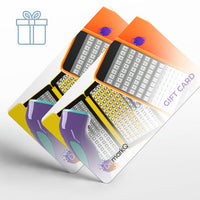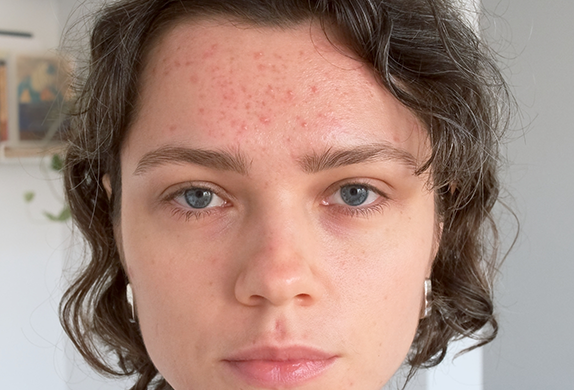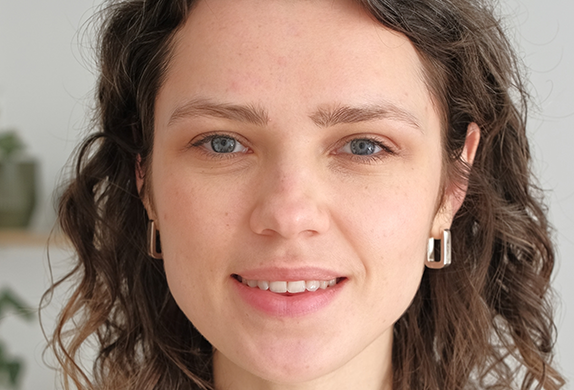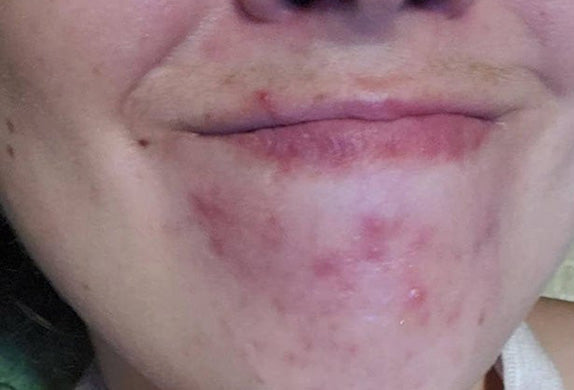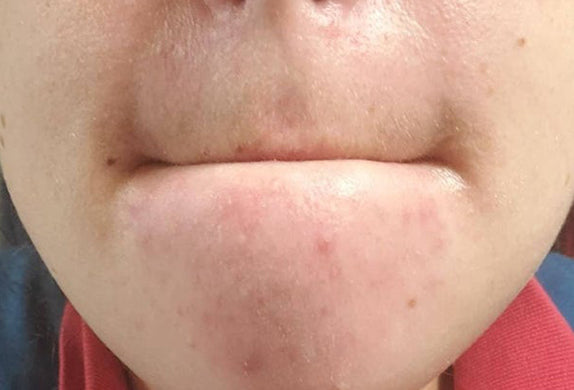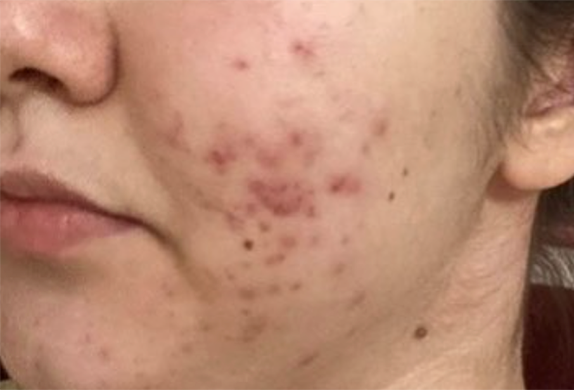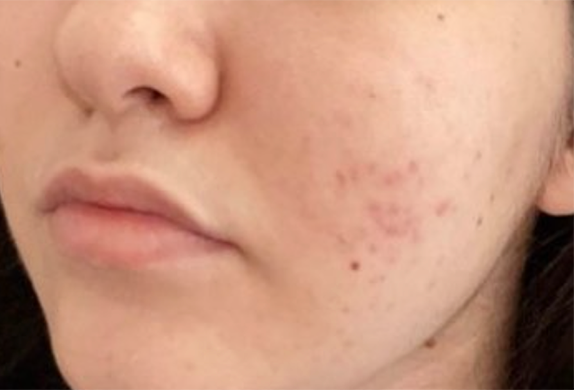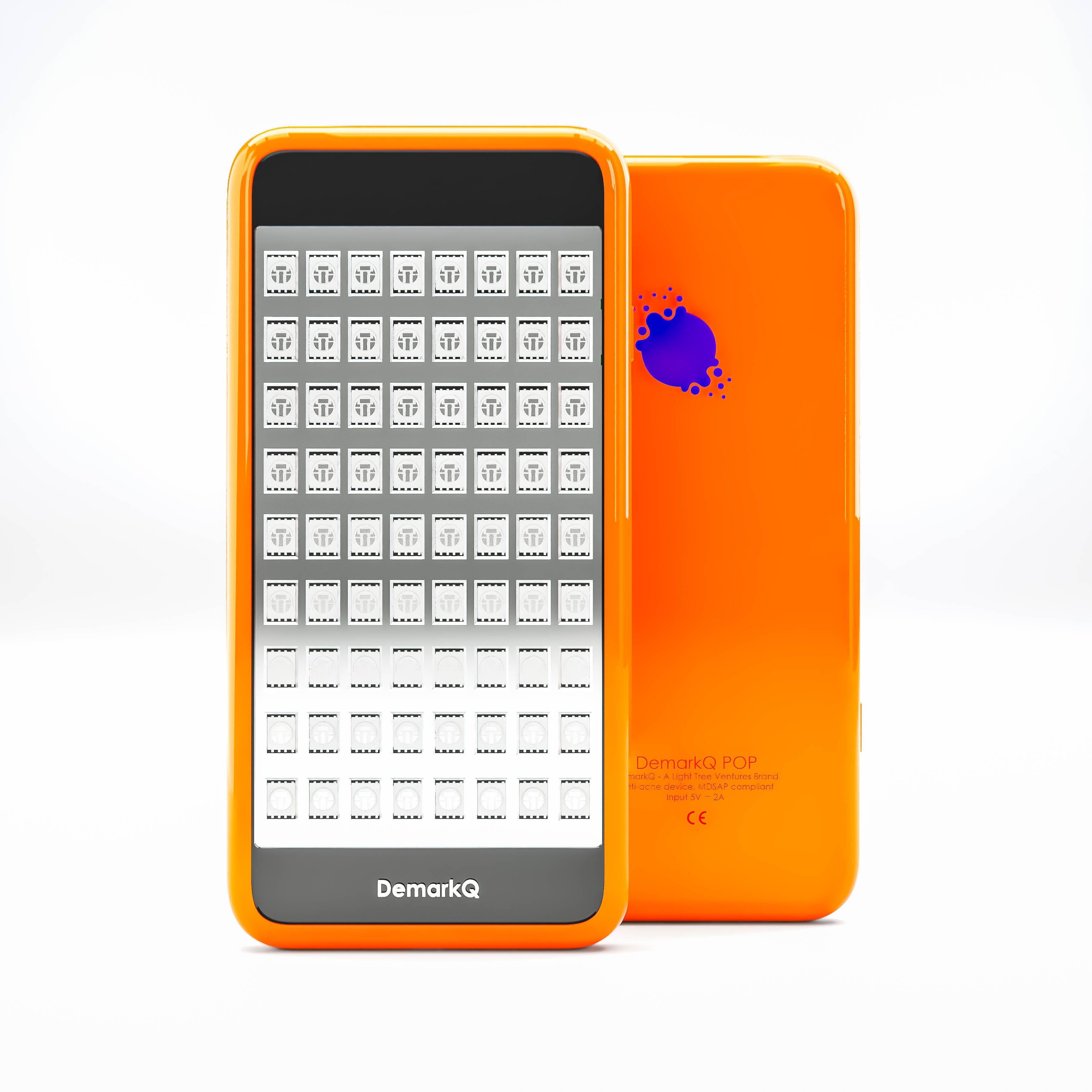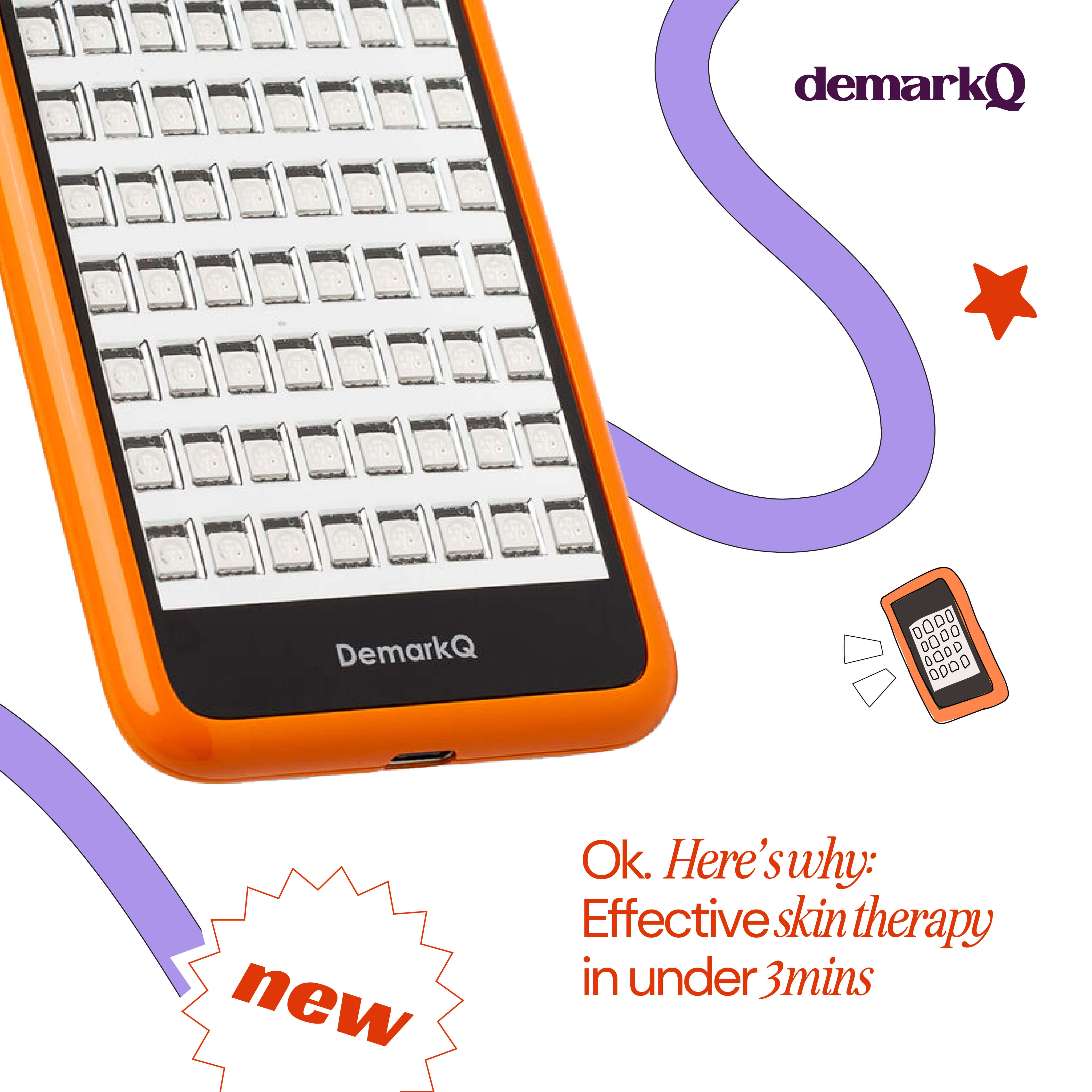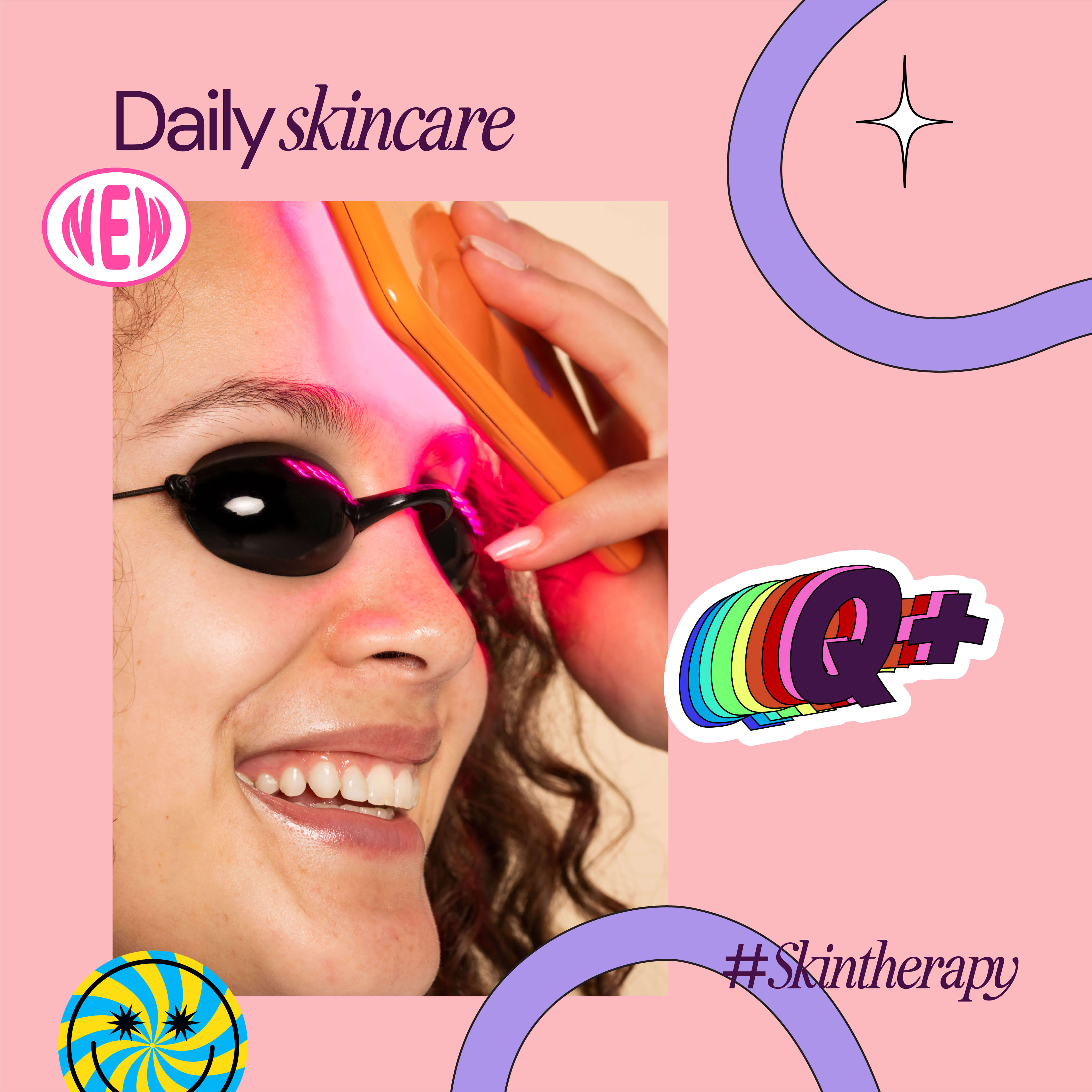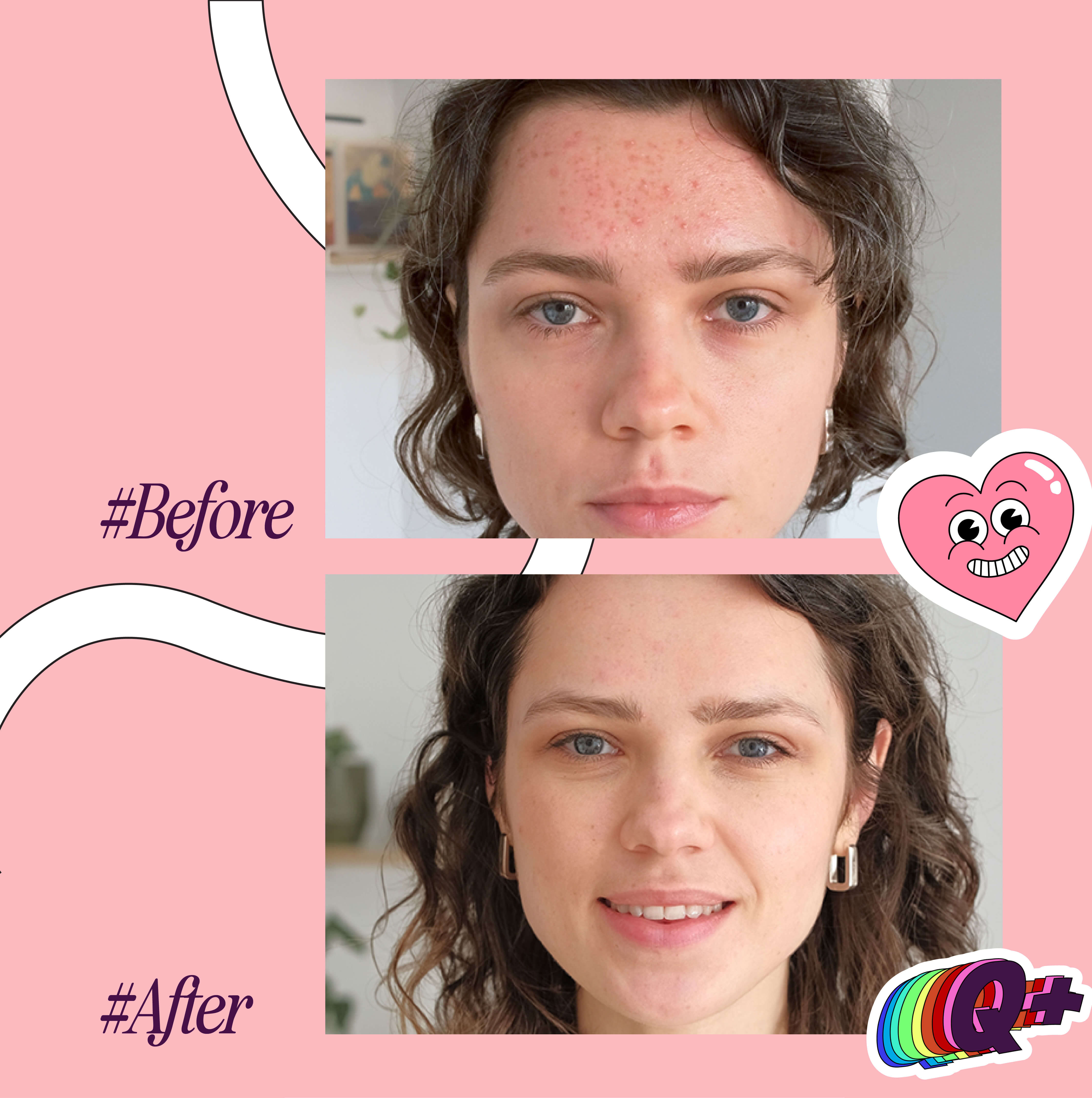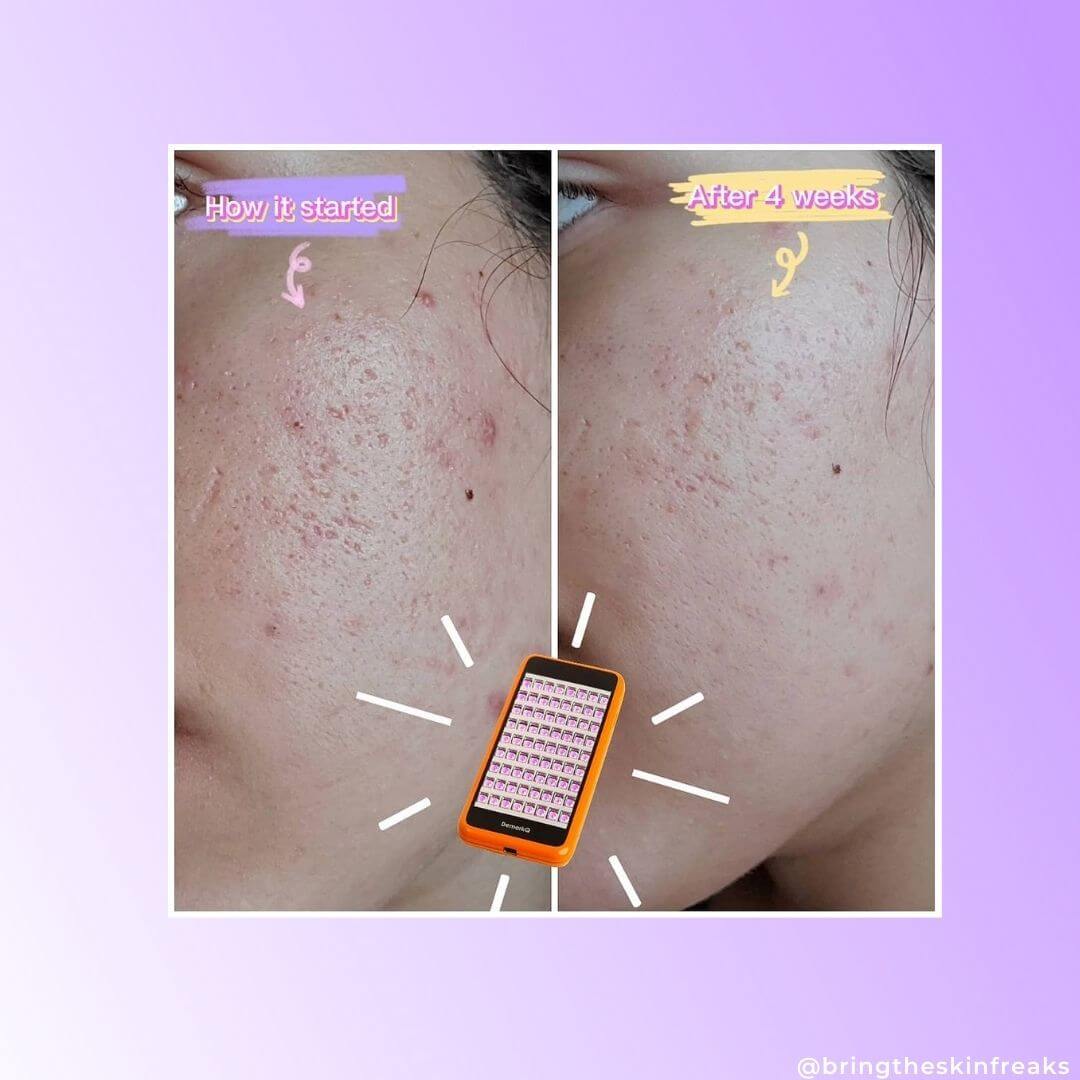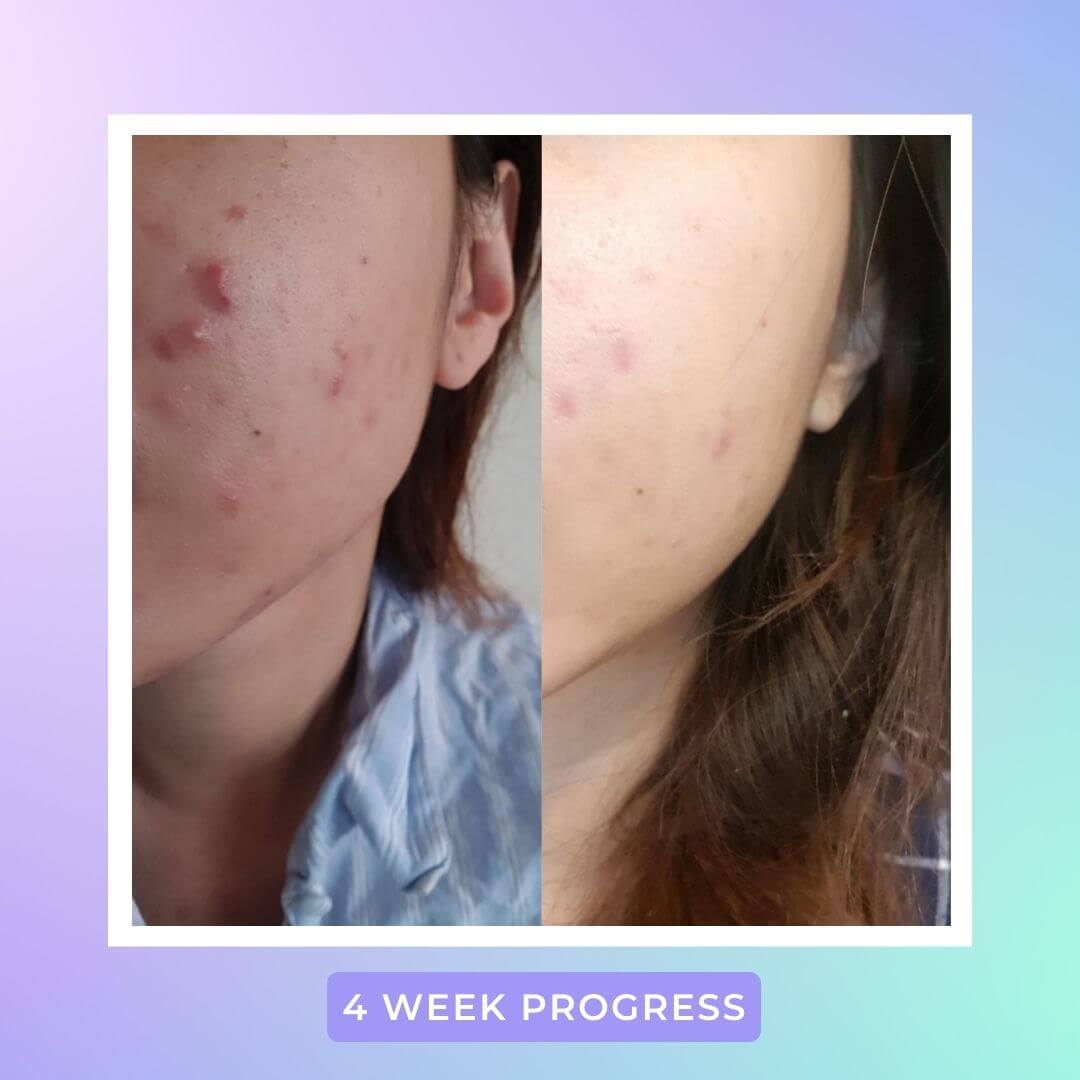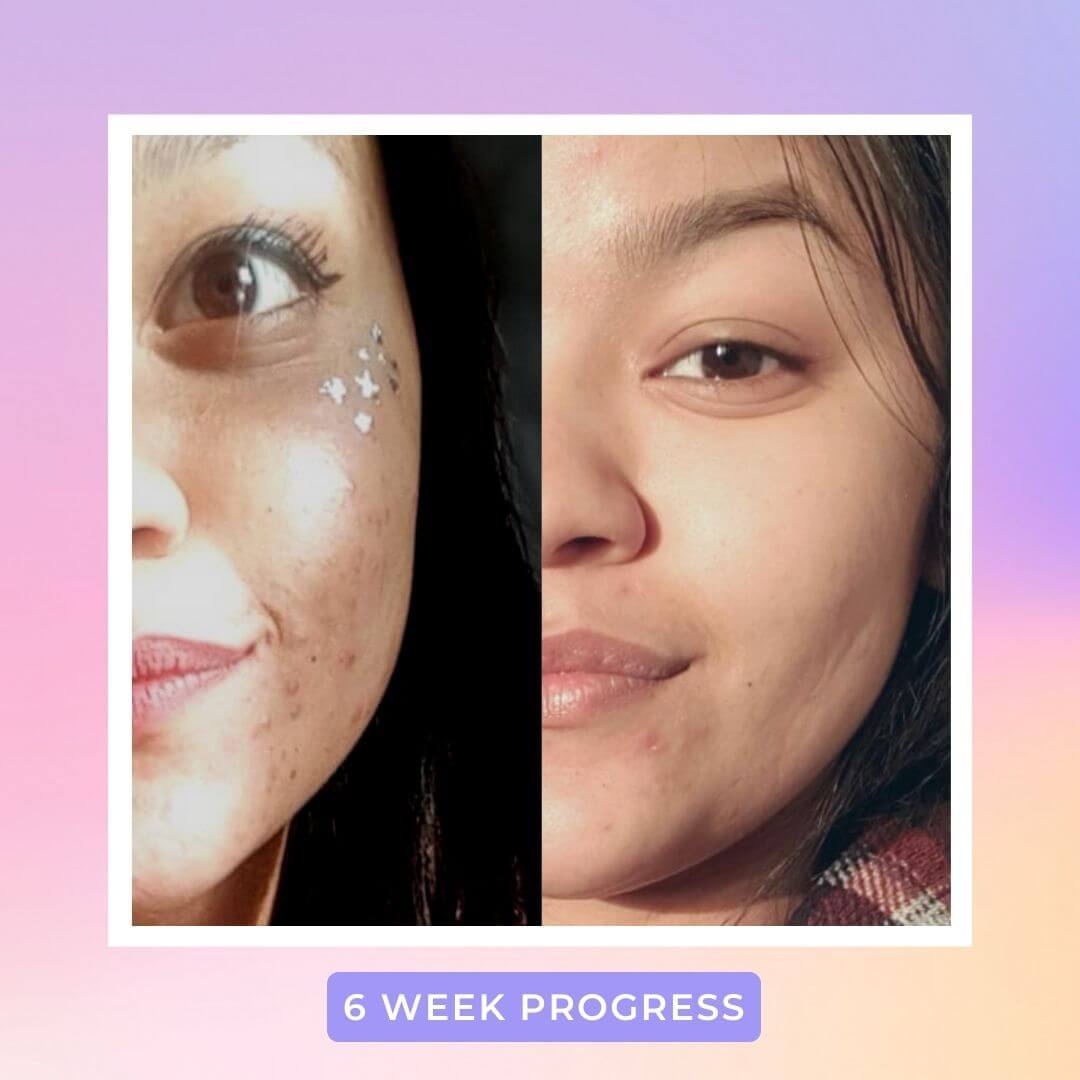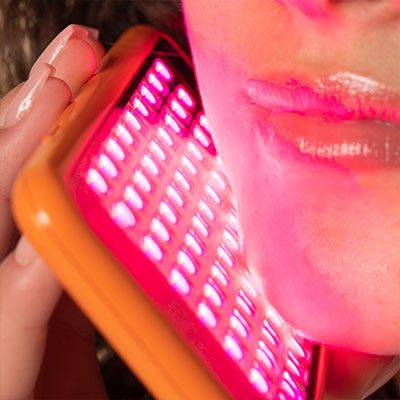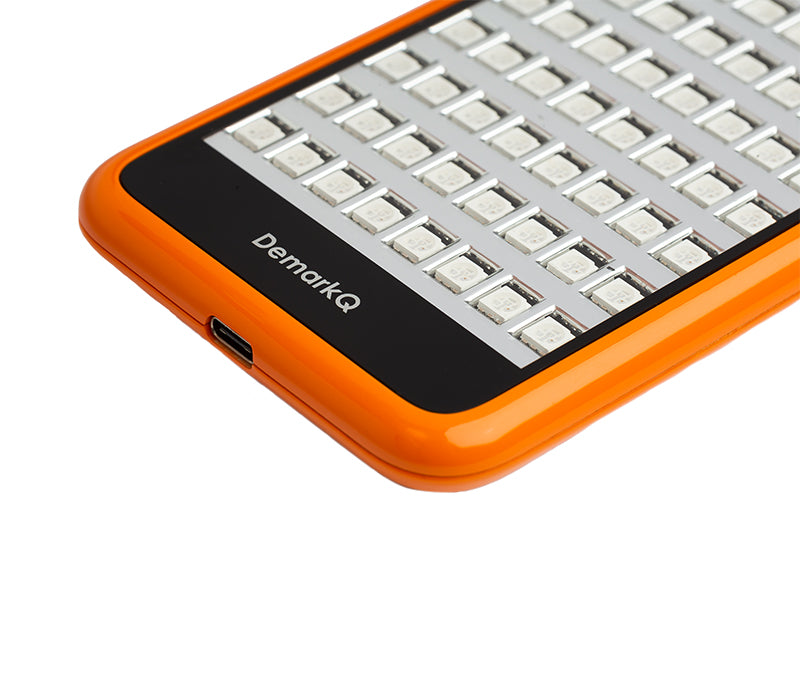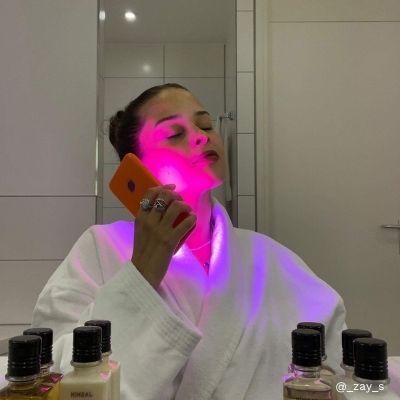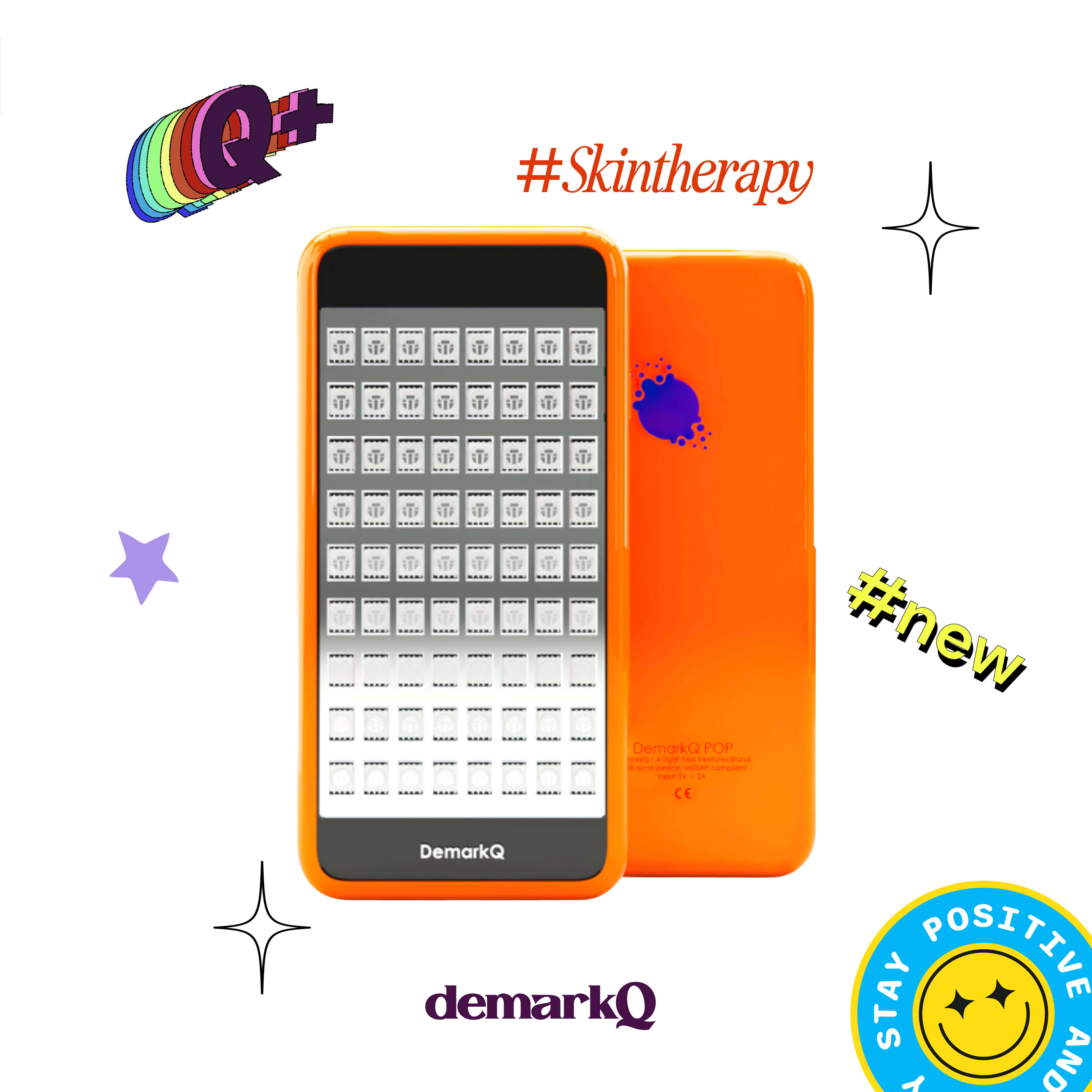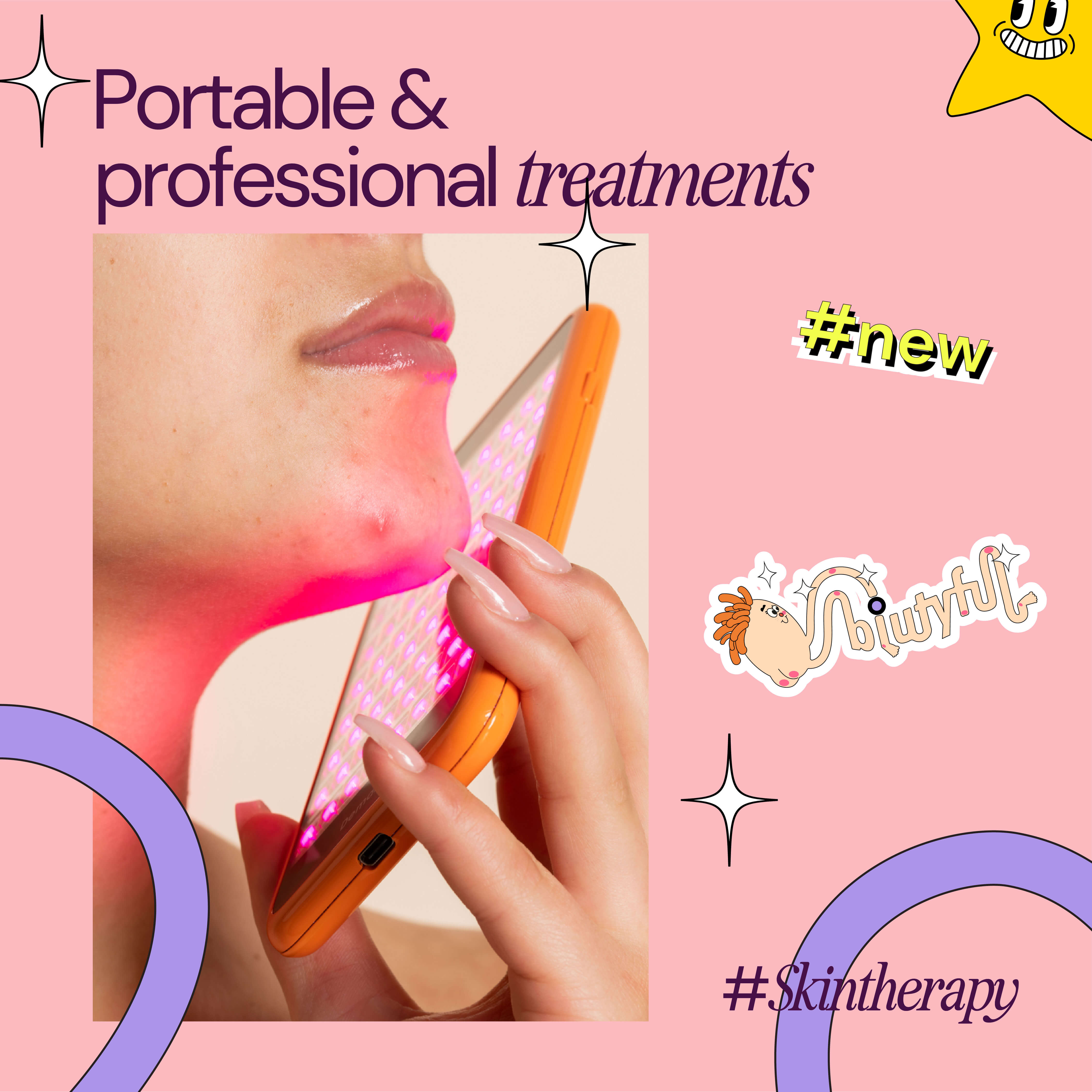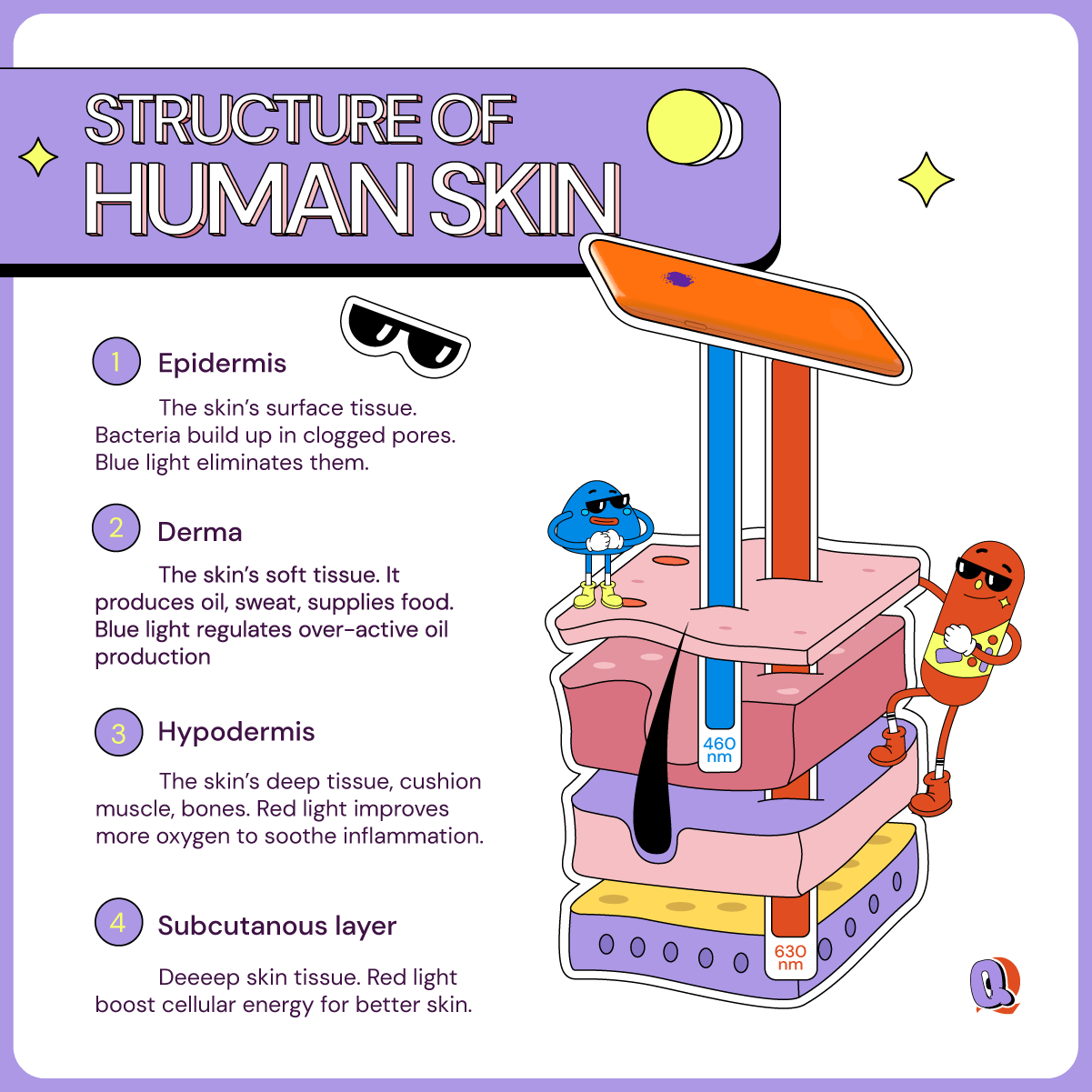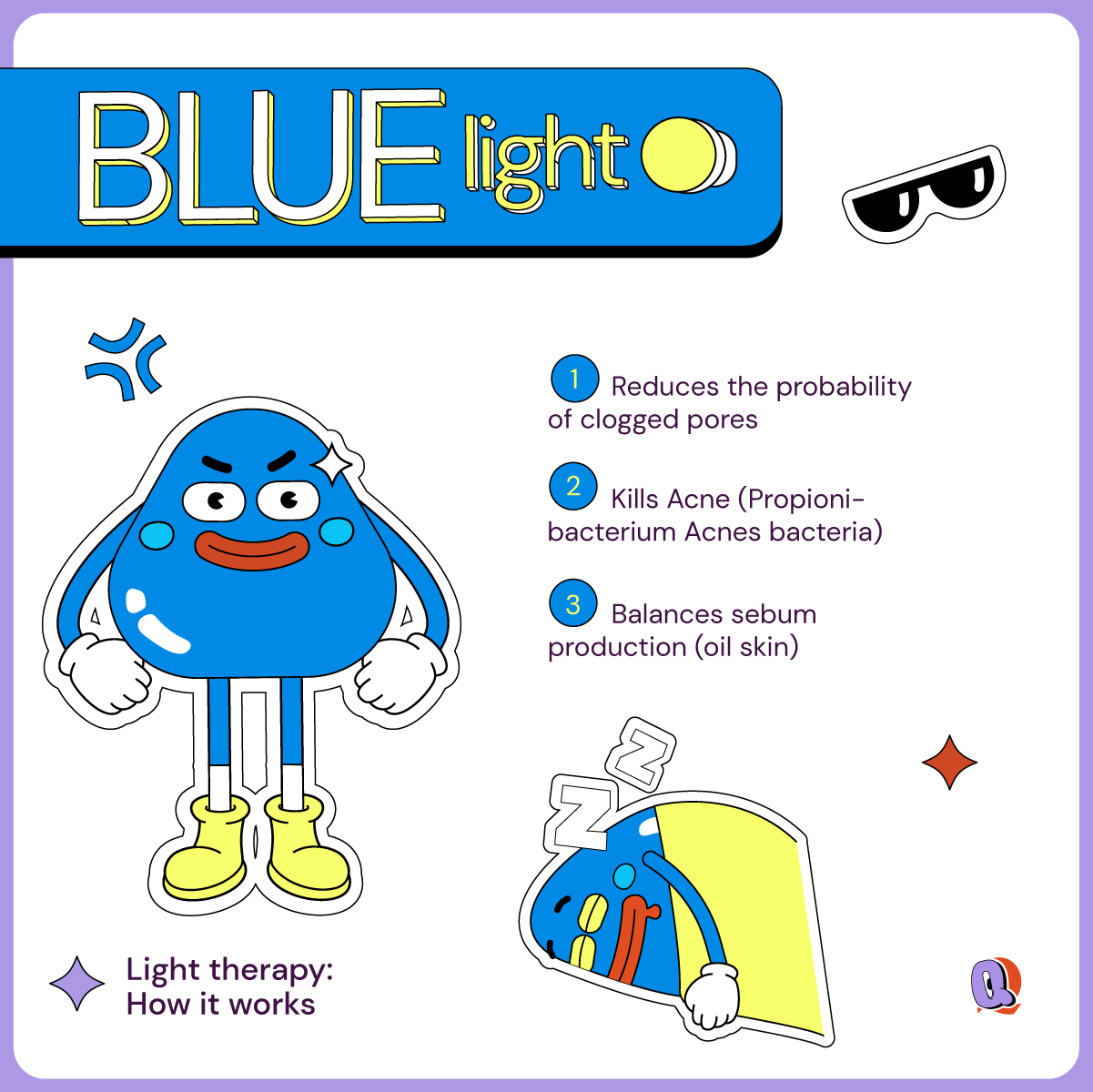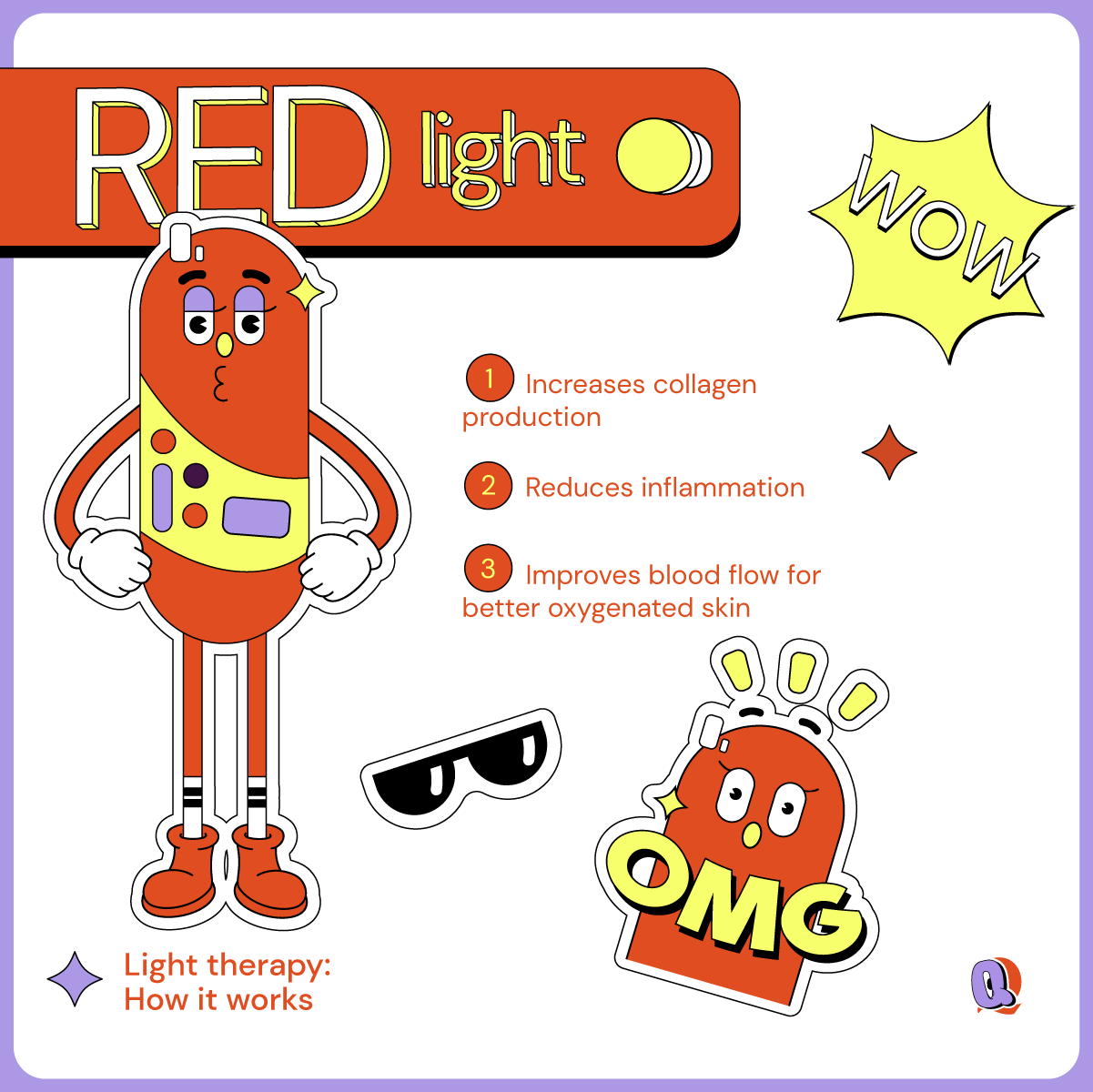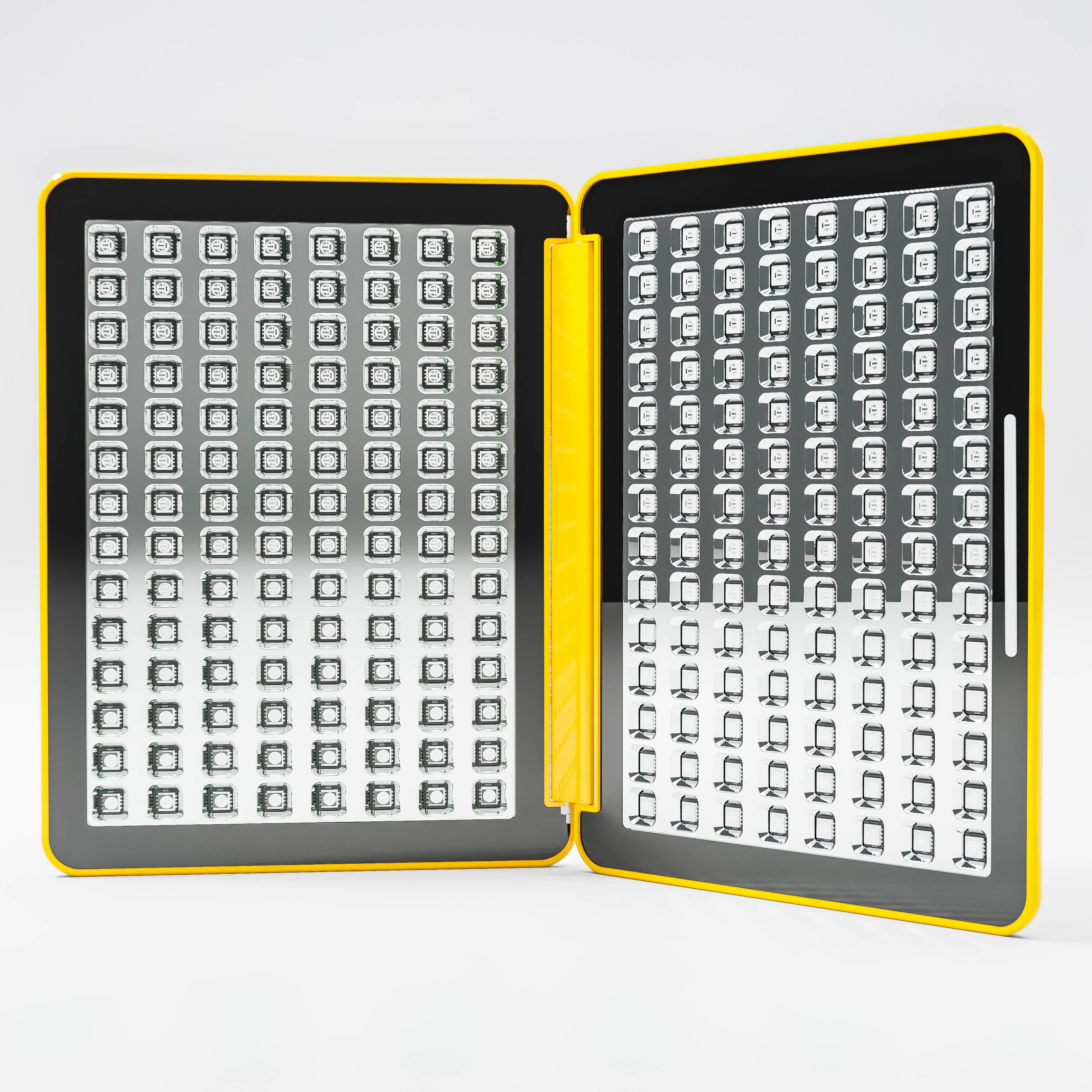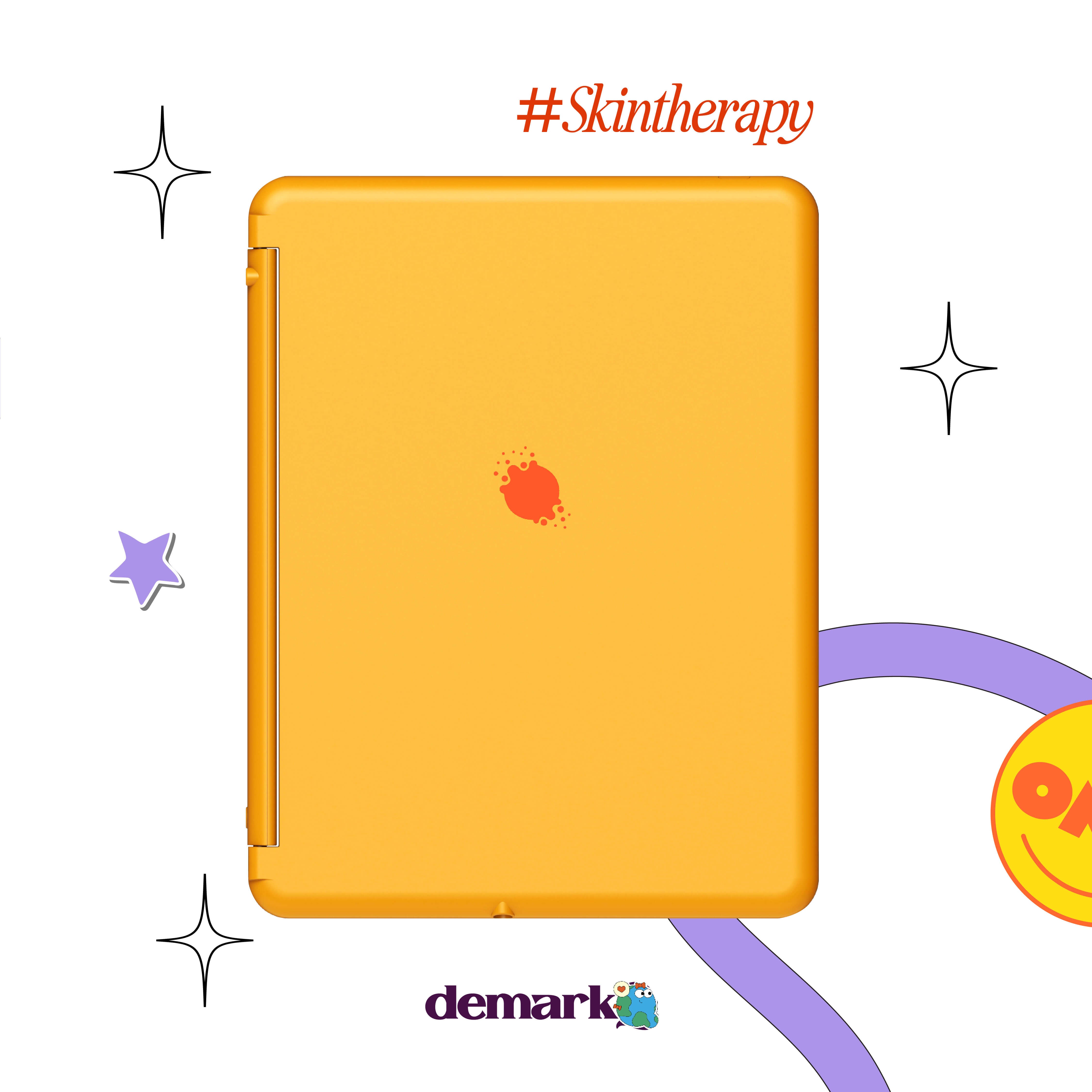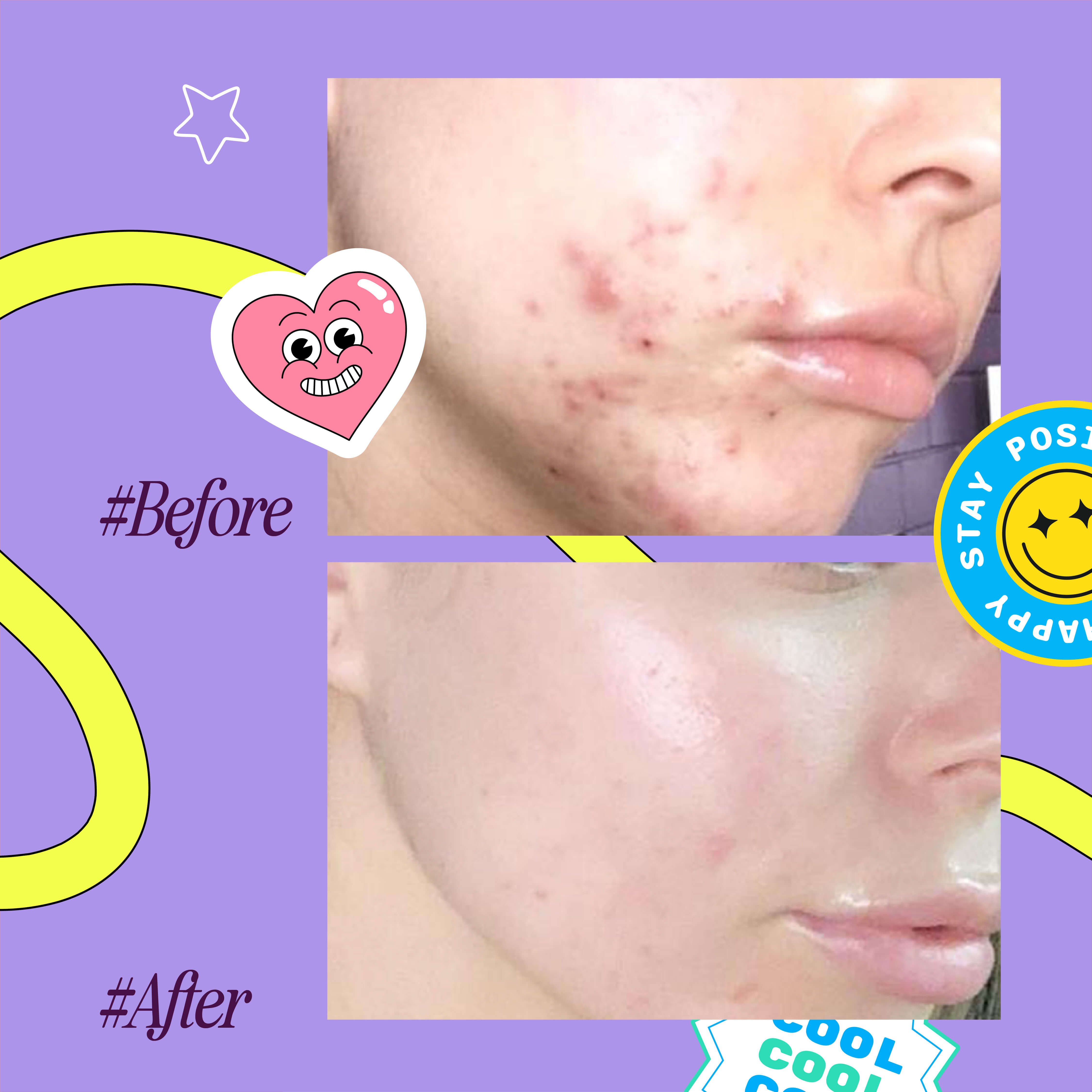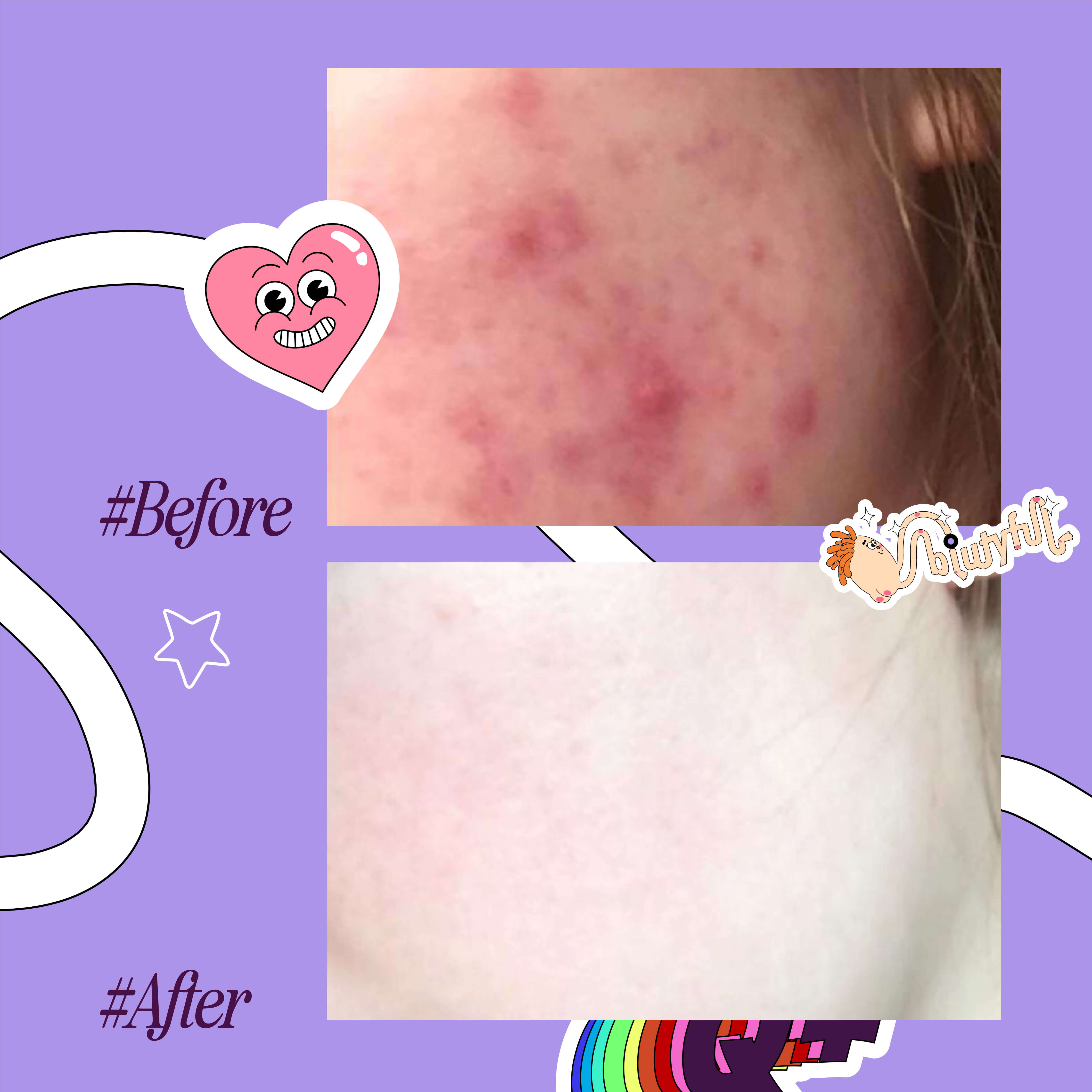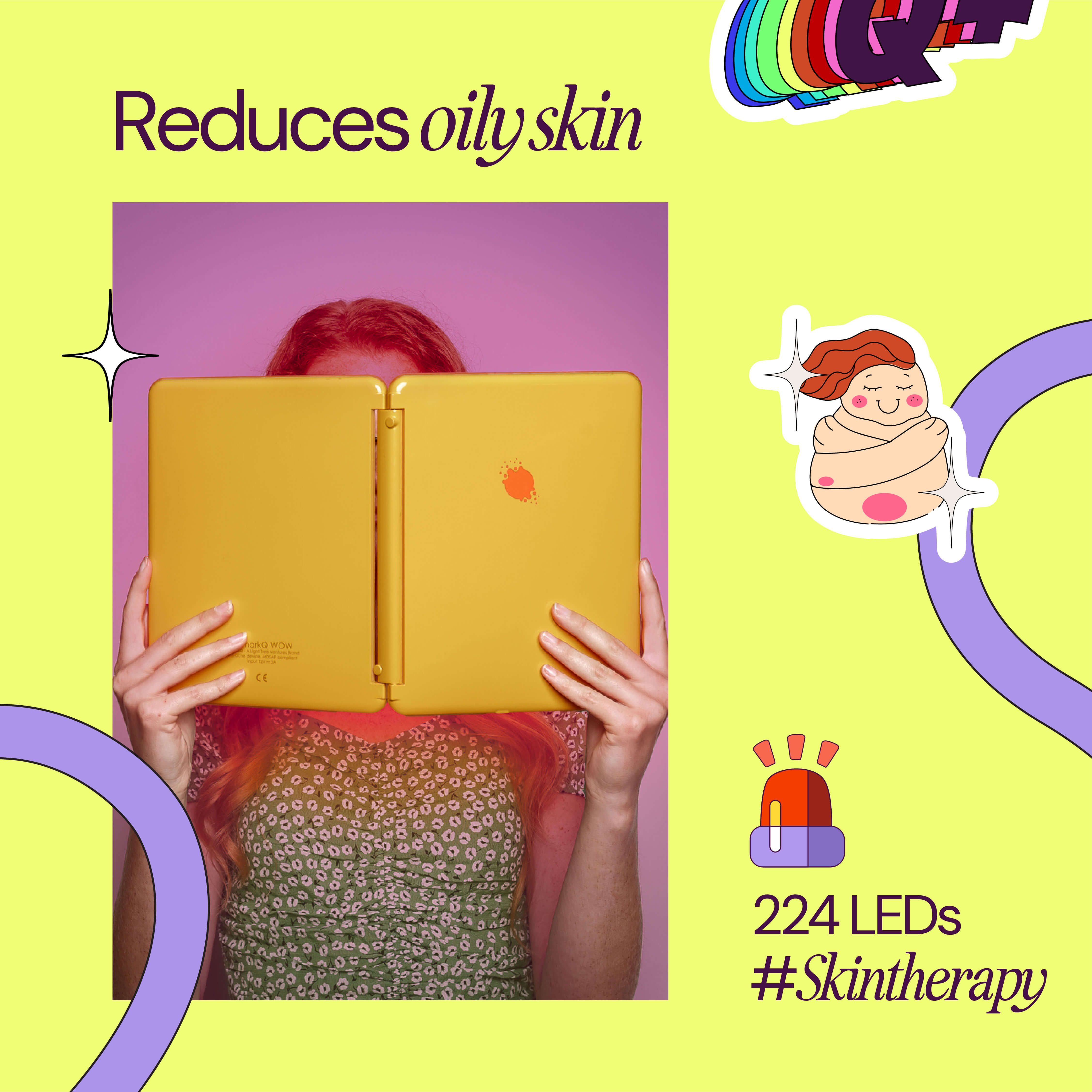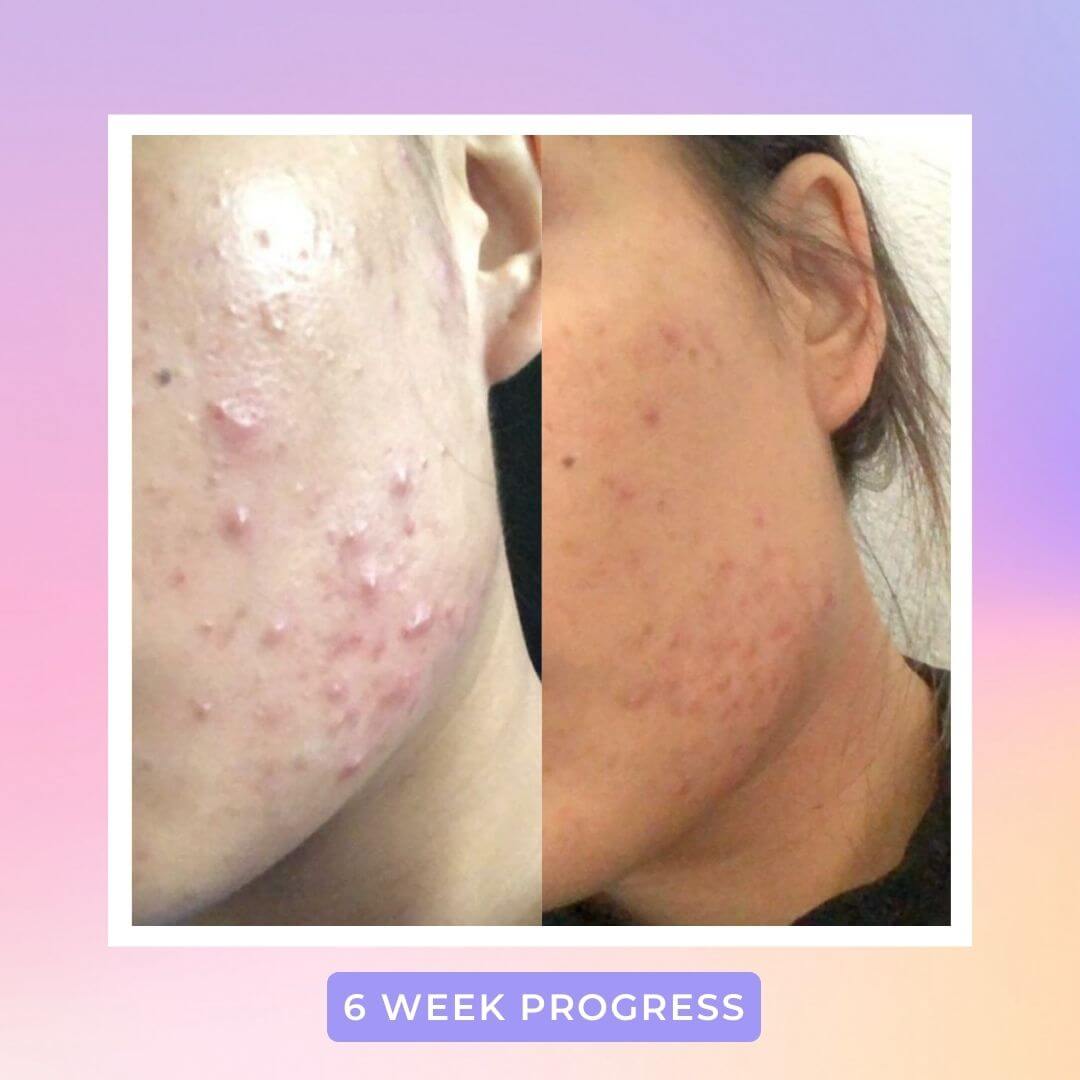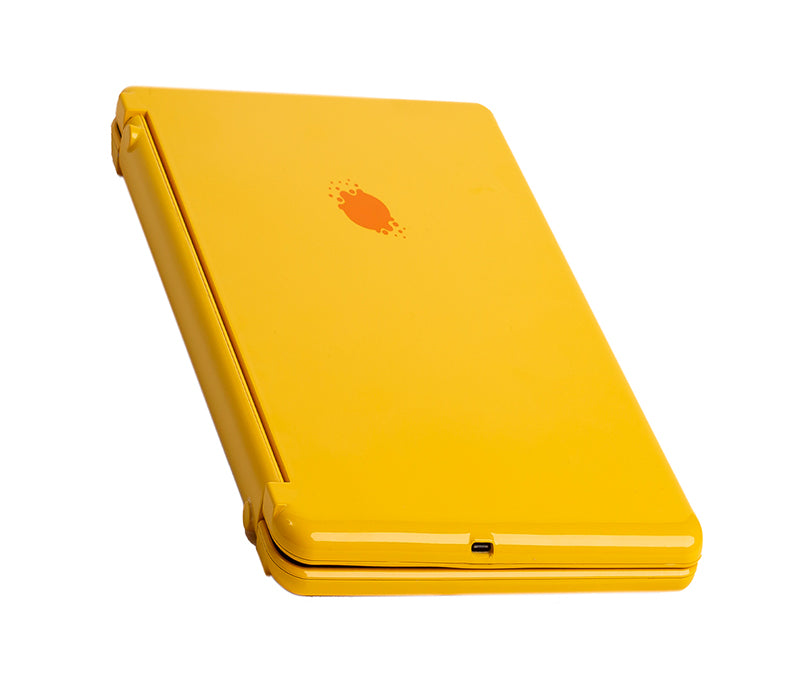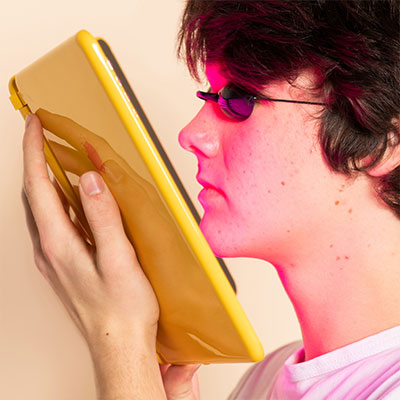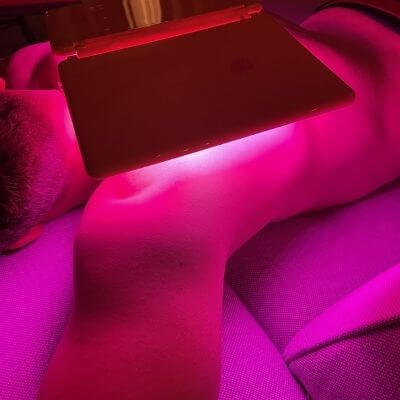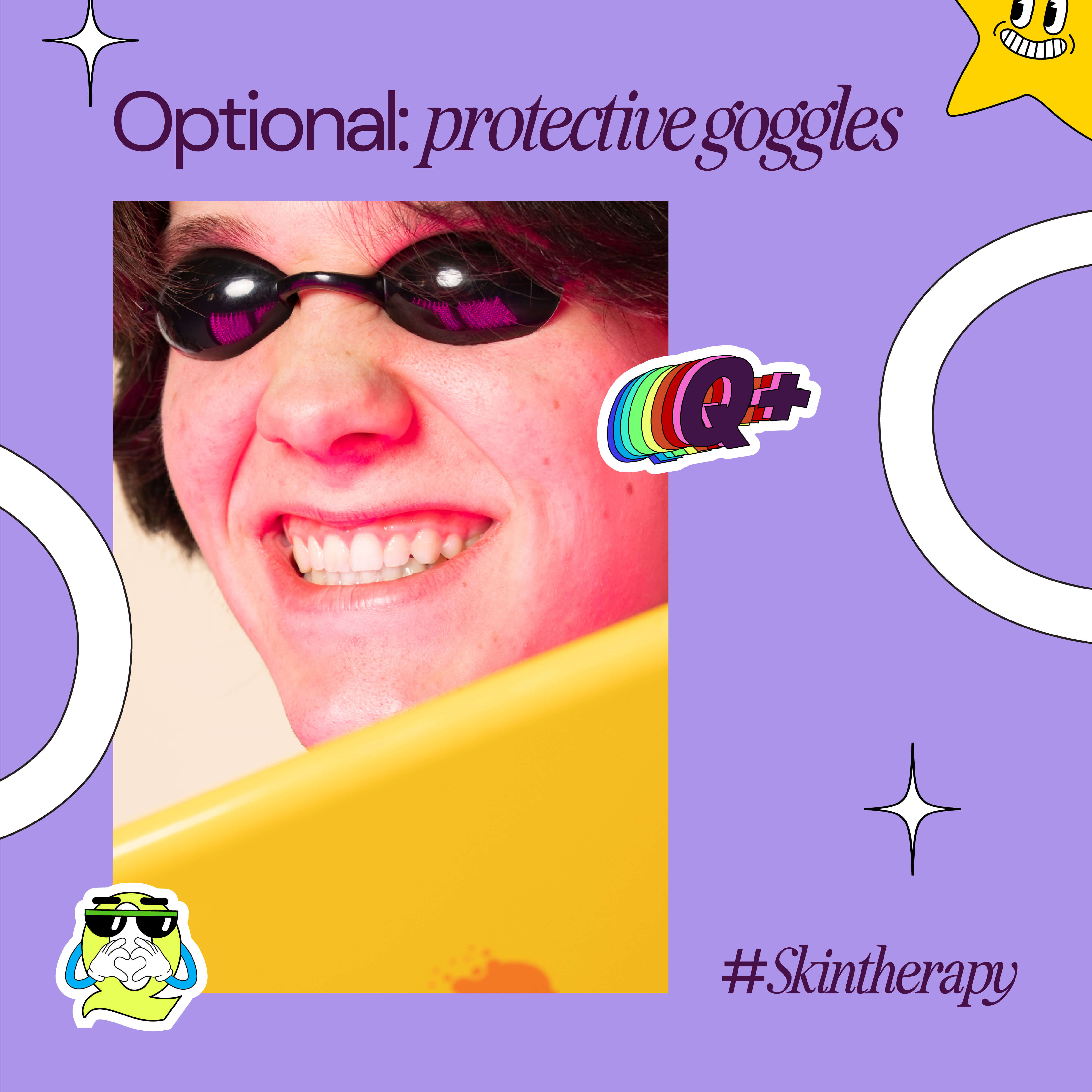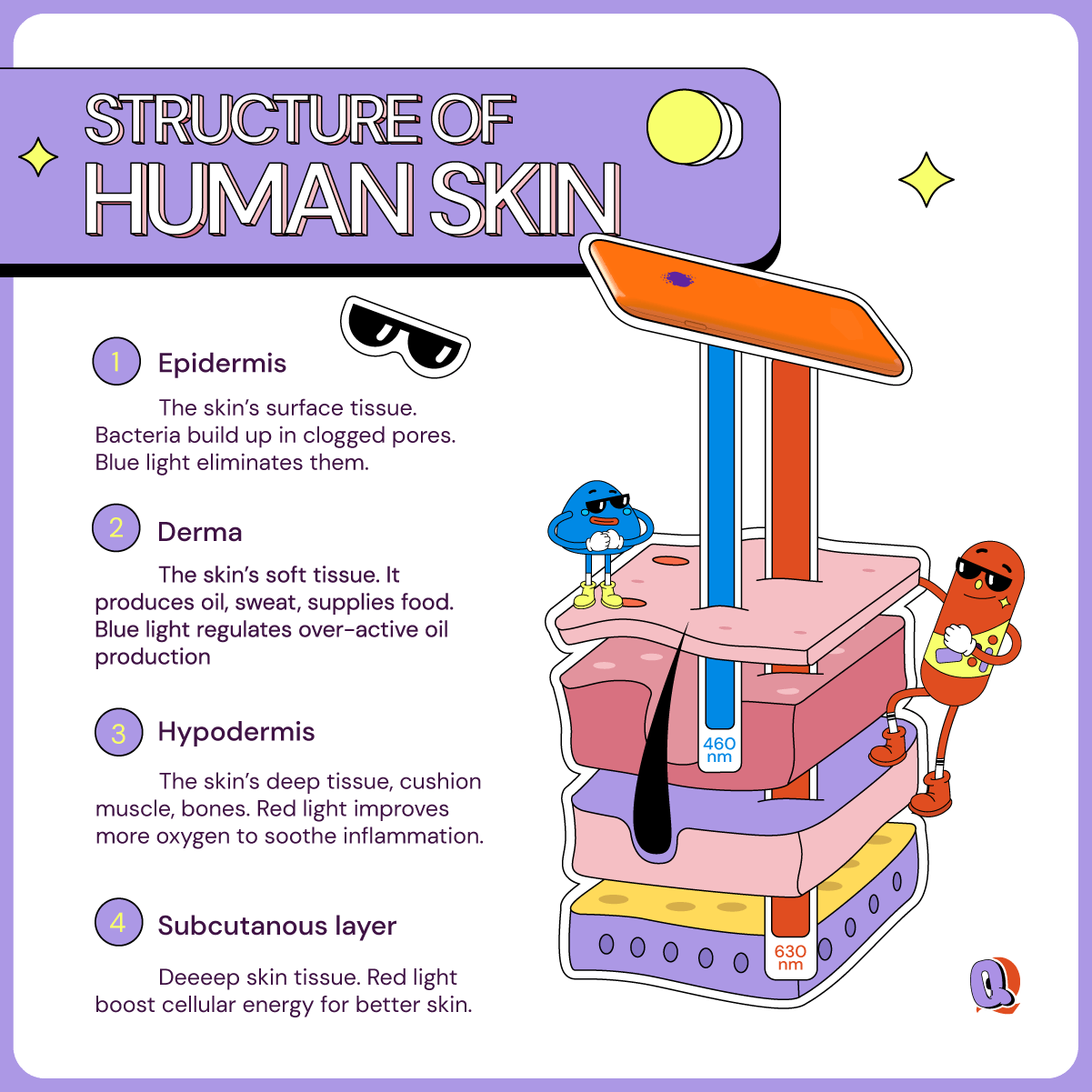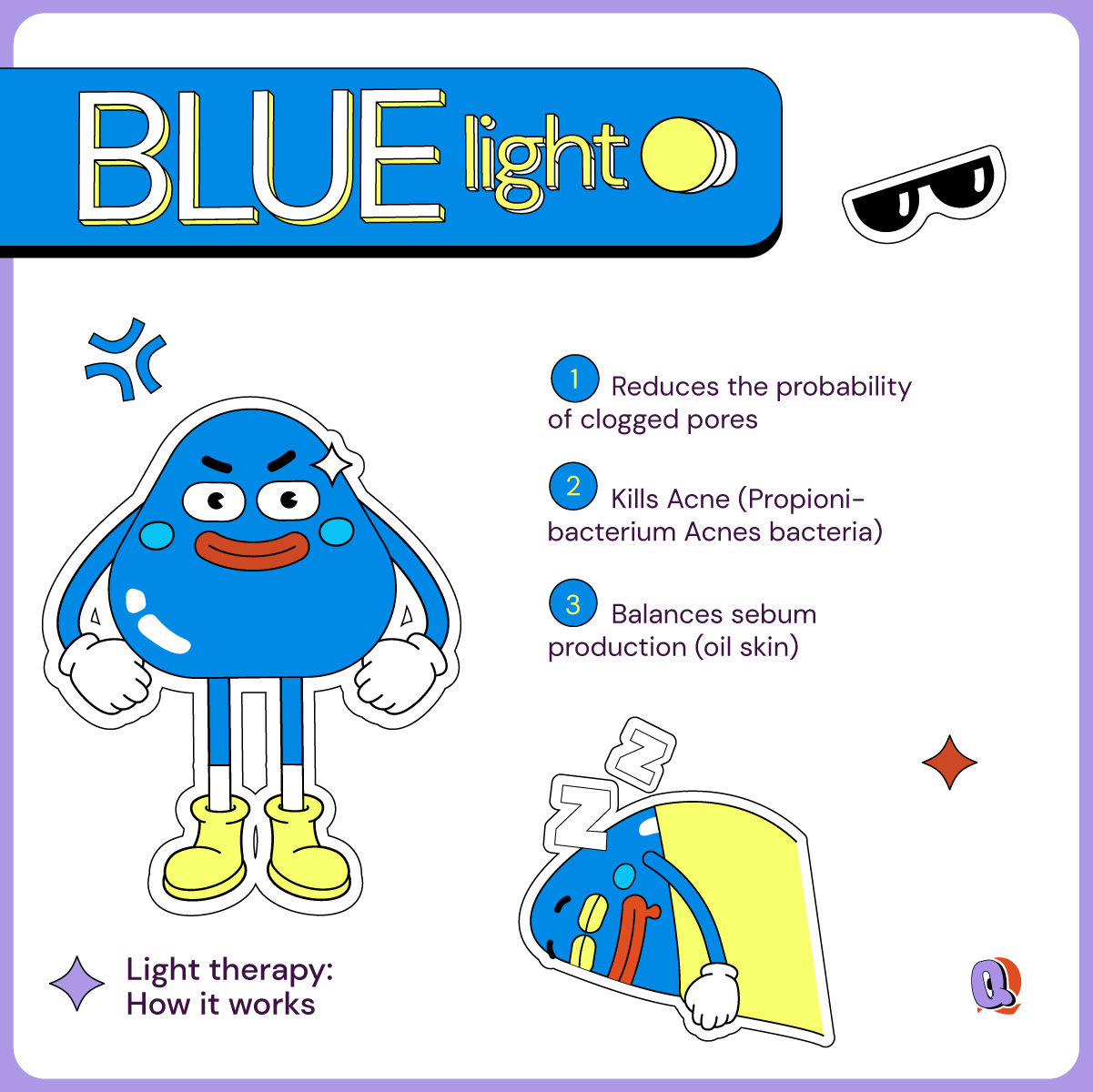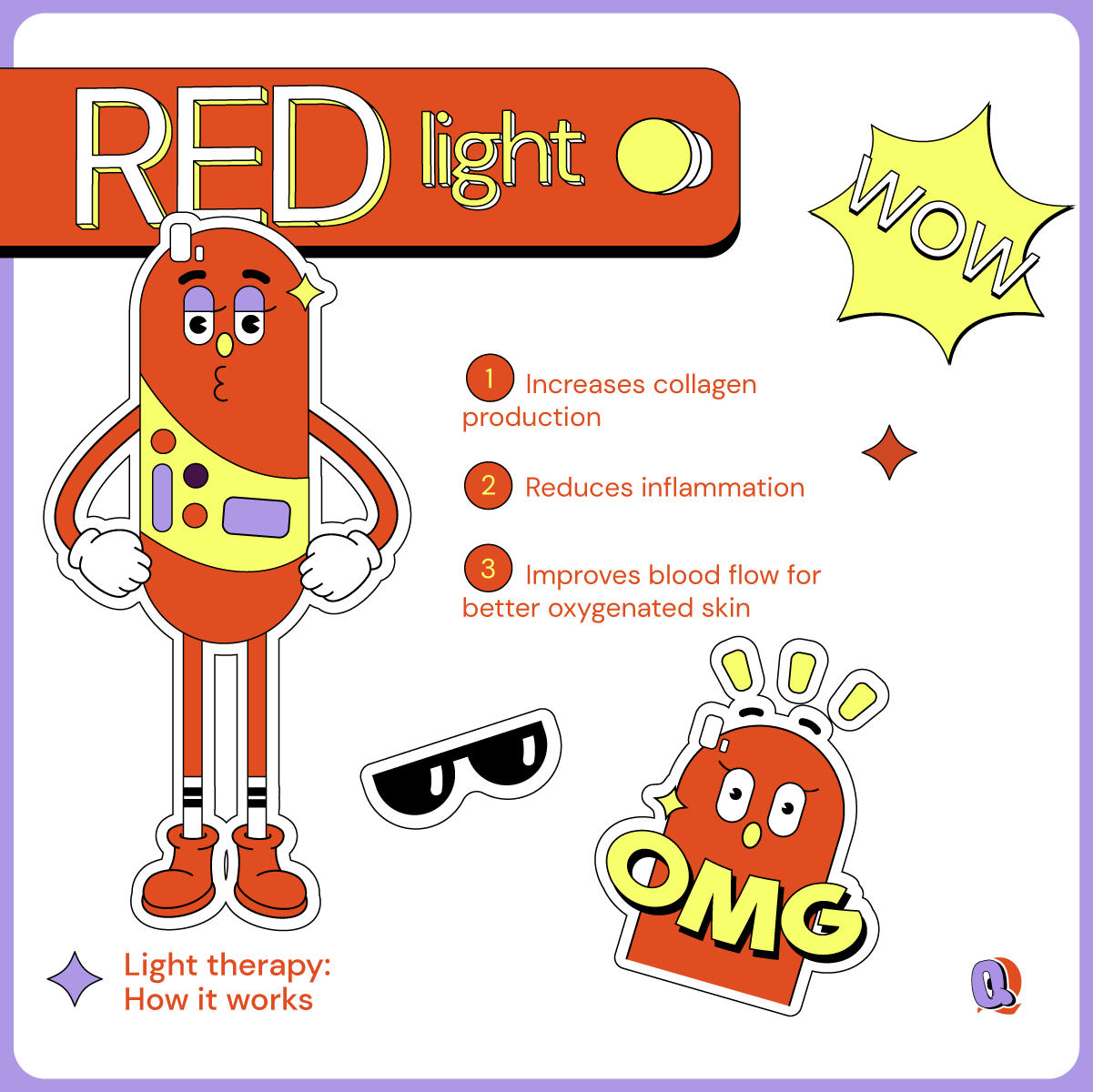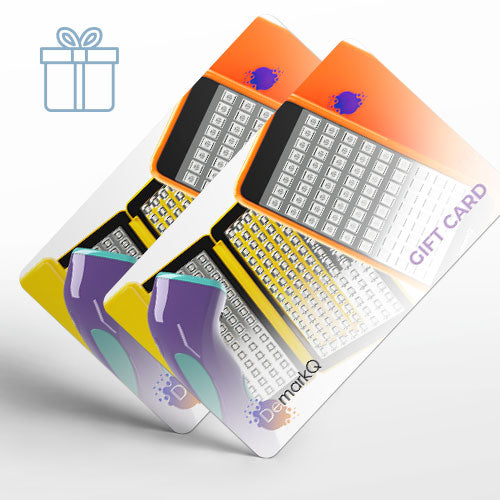There are many reasons why acne can be difficult on the skin. Apart of discomfort and blow to self-esteem, it also makes it very difficult to take care of the skin.
With all the misinformation around the topic, even simple questions like should you moisturize, wear sunscreen, or eat something require a dedicated google search. While, we’ll definitely answer how you can build a routine from scratch, today we’ll be going through the topic of exfoliation for acne-prone skin.
This blogpost aims to be your 101 introduction to exfoliation and how you can find the perfect glow companion for you.
1. What is exfoliation?
2. Different types of exfoliation?
3. Exfoliating for acne
4. Using exfoliators wisely
What is exfoliation?
Let’s begin with the basics- what exactly is exfoliation. Exfoliation is the process of removing dead skin cells from the skin surface. This can be done with chemical exfoliants, granular scrubs, or special exfoliating devices.
Skin naturally sheds dead skin cells to make room for new skin cells every 4-6 weeks. When the dead skin cells don’t shed completely, they build up leaving dry, flaky patches, dull-looking skin, and also even clogs up pores (whichwe all know is the root cause for acne).
Exfoliation helps slough off this build up, removing bacteria and dead skin cells that clogging pores. This reduces the appearance of congestion and prevents future zits from showing up. Helps absorb skincare better: When the dead skin cell build up is removed, the skin is able to absorb your other skin care ingredients better and therefore, work better. It also helps attract and retain hydration so your moisture barrier stays intact.
By adding a proper exfoliation step to your skincare routine, you should be able to see brighter, clearer, and healthier skin.
It should be noted that, in this article, we will only be focusing on at-home exfoliation for acne-prone skin.
Different types of exfoliation?
There are a number of ways via which you can exfoliate your skin, some better than others. Roughly they would be categorized into the following:
Mechanical/physical exfoliation:
This is when you use a granular scrub(apricot scrubs/walnut scrubs) or exfoliation device (microdermabrasion for example) to physically remove the congestion and build up from your skin. Most DIY scrubs are usually also fall under this category as they rely on the scrub’s texture to rejuvenate the skin.
Chemical exfoliation:
This form of exfoliation is becoming increasingly popular in the recent years. It uses hydroxy acids, retinol, and enzymes to renew the skin.
Among the most popular chemical exfoliators, these are the ones acne-prone individuals should know
AHA: or Alpha-Hydroxy-Acids are water soluble acids that peel away at the surface of the skin. This is great for hyperpigmentation and generally brightening the skin. Popular AHAs include glycolic acid, lactic acid, malic acid etc.
BHA: or Beta-Hydroxy-Acids are oil soluble acids with smaller molecular structure than AHAs. Therefore, it is able to penetrate deeper into the skin surface remove excess oil from pores. Salicylic acid is the most well-known and common BHA when it comes to skincare.
Retinoids: Retinoids area vitamin A derivative that speed up the cell turnover of the skin, which is the process of creating a fresh layer of skin. So, if your cells turn over every 28 days(or more if you are older than 30), retinol essentially tricks your body into churning new skin cells earlier. This is great for accelerating your acne lifecycle and reducing the time to fade spots, scars, and wrinkles. You can find different strengths for retinoids.
Enzyme exfoliators: Enzyme exfoliators help clear your skin by literally digesting the dead skin cells on the skin surface. And since enzymes only digest dead skin cells, it won’t over exfoliate your complexion, making it a great option for sensitive skin.
Many chemical exfoliation can come in the form of a mask. However, there are many cleansers, toners, and moisturizers that incorporate these ingredients as well.
While exfoliation in general is a crucial step to building a strong skincare routine, improper or excessive use of these can be very abrasive and often lead to microtears on the skin and strip the skin from its natural oils. This can result in further skin problems like inflamed, irritated skin, eczema, and dehydrated, broken skin.
.jpg)
Exfoliating for acne
If you are acne-prone, you should absolutely add exfoliation to your skincare routine. Like we explained earlier, exfoliation can decelerate many of the processes that directly contribute to acne. However, depending on your skin type/condition, acne severity, and triggers, there are many options you can take. The key is to find the right treatment for you.
If you’re struggling to find the right exfoliant for your acne-prone skin, here is a quick guide to make things a little easier:
Chronically breaking out: if you are breaking out consistently
If you are breaking out into painful zits without any breaks of clear skin, you are likely to have inflamed, sore skin. That is why is it is absolutely crucial to be gentle during this point and avoid unnecessary rubbing and tugging.
That’s why we recommend you forego any sort of mechanical exfoliation when dealing with this form of acne. We would recommend using gentle treatments like enzyme exfoliation or a weaker hydroxy acid. Supplementing these treatments with gentle, non-invasive treatments like light therapy can also be very helpful when dealing with this form of acne. This will not only supplement your exfoliation efforts but also make sure that your acne continues to heal.
Having said that chronic breakouts are often difficult to treat completely. In most cases it requires dermatologist intervention through strong retinoids and ingestible medication. However, a gentle exfoliation is always great for maintenance.
Moderate Periodic breakouts: if you suffer from occasional moderate breakouts on a periodic basis
This type of acne would cyclical/hormonal flare-ups that often leave your skin congested and discoloured. This form of acne is often triggered by sticky cells (cells that are more likely to become more sticky from time to time because of hormonal changes).
Again, we’d recommend you try to be as gentle as possible to your skin. While it may be tempting to use a more powerful treatment since your skin isn’t inflamed, it can often lead the skin dehydrated and irritated. Therefore, a weaker BHA/retinoid or an enzyme cleanser may be the best option for us. You can also use a physical scrub but make sure that it is very gentle.
Mild Periodic Breakouts: if you suffer from occasional mild breakouts on a periodic basis
People with naturally oily skin type and mild periodic breakout (occasional pimple or two during your period/hormonal cycle) fall under this category. If you have this sort of acne, you are more likely to suffer from congestion than inflamed zits.
Since the skin is not as inflamed as the previous conditions, you can use higher concentration of chemical exfoliants. You should also be safe with a slightly more coarse scrub as your lipid barrier is pretty strong. However, it is still important to make sure that you do not over exfoliate your skin.
Incorporating exfoliating ingredients to other parts of your daily skincare routine (cleanser/moisturizer with salicylic acid) may help keep oil production at bay. Additionally, a thorough treatment with a stronger exfoliant 1-2 times a week should do the trick.
Using exfoliators wisely
We’ve said it before and we’ll say it again: exfoliation is a crucial step to achieving healthy, glowy skin. However, it is also very easy to get caught up with the result and disregard your lipid (moisture) barrier leading to a new host of problems. So, we have prepared a list of best practices for you the next time you consider exfoliating your skin:
Do not overdo it: We cannot stress this enough: exfoliation comes with many benefits. However, too much of a good thing is never good. Excessively abrasive treatments or over exfoliation can compromise your lipid barrier. This will dry out your skin and lead to flaky, inflamed skin that can (and will) breakout into eczema and hives. Once broken, a barrier can take anywhere from a few weeks to a few months to treat.
That’s why we recommend using exfoliants no more than2-3 times a week. It is also highly recommended that you take the time to build tolerance before you move onto stronger and stronger exfoliators.
Pick the right exfoliator for you: Not all exfoliators were made for your skin and that’s okay. For example, if you have sensitive skin, a granular coffee scrub (as tempting as it is) may not be the best option for you. BHAs are generally great for acne-prone individual so long as you start with a low concentration option and build your tolerance up. Think thoroughly about your skin’s reaction to past products so you know exactly how much your skin is able to handle.
Apply moisturizer: Acne-focused exfoliating ingredients can often strip the skin from hydration, leading to dehydrated brittle skin. Therefore, it is important to continue providing it the hydration it requires through an oil-free moisturizer. Additionally, your moisturizer is more likely to be absorbed better once the dead skin cell build up is gone.
Consider professional treatments: At home exfoliants are great! However, an occasional trip to the aesthetician and dermatologist can also do wonders. These professionals can recommend and provide stronger types of exfoliation (dermaplaning /microdermabrasion/chemical peels) that will help result in healthier skin in the long term.
Use sunscreen: Exfoliants can make your skin a lot more photosensitive. This means that insufficient protection from UVA/UVB light can lead to long term damage and skin discoloration.
Supplement exfoliation with light therapy: Unless you are using a very strong retinoid that makes your skin SUPER sensitive to light, adding gentle, non-invasive treatments can double your exfoliation efforts. This is because light therapy treatments designed for acne (like demarkQ devices) clear pimples without compromising the skin barrier. If anything, exfoliation may even improve the overall results one can achieve from light therapy, ultimately ensuring you achieve healthy, bright, glowy skin.

